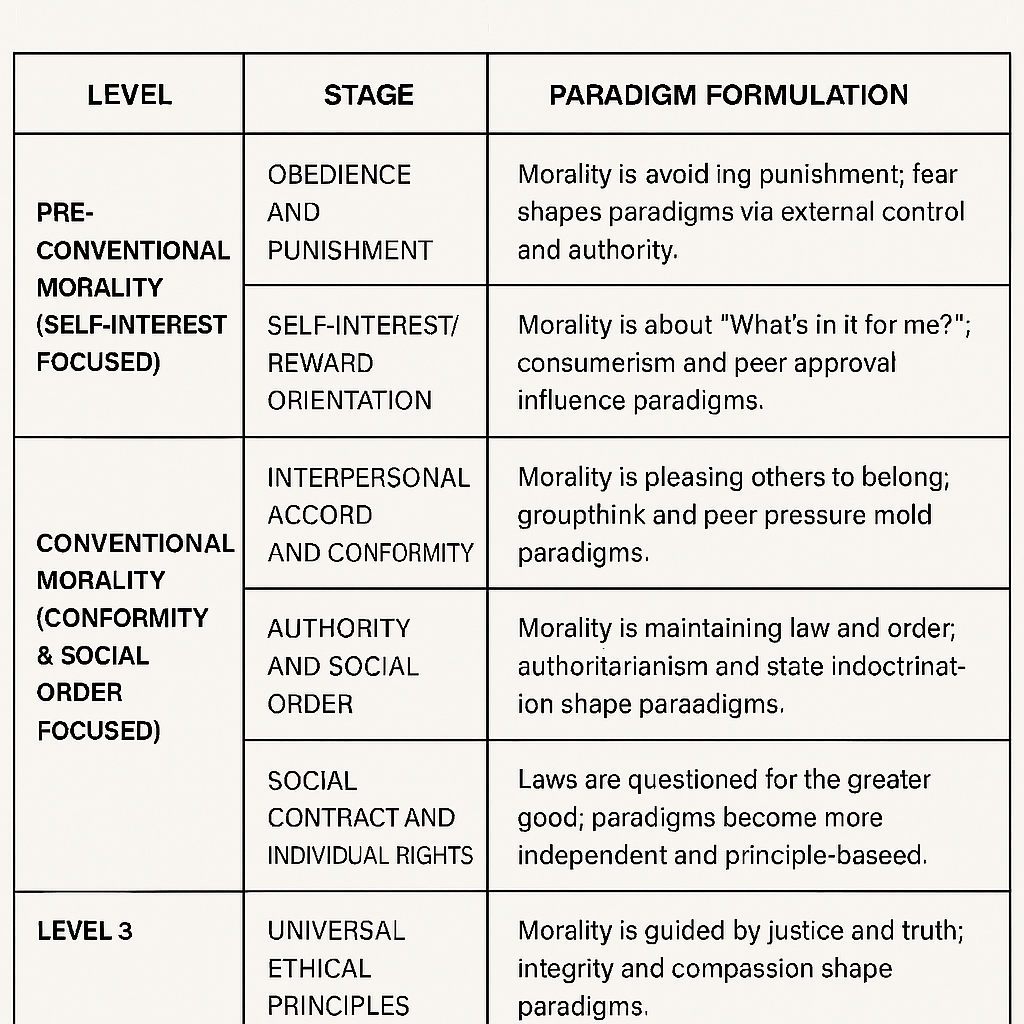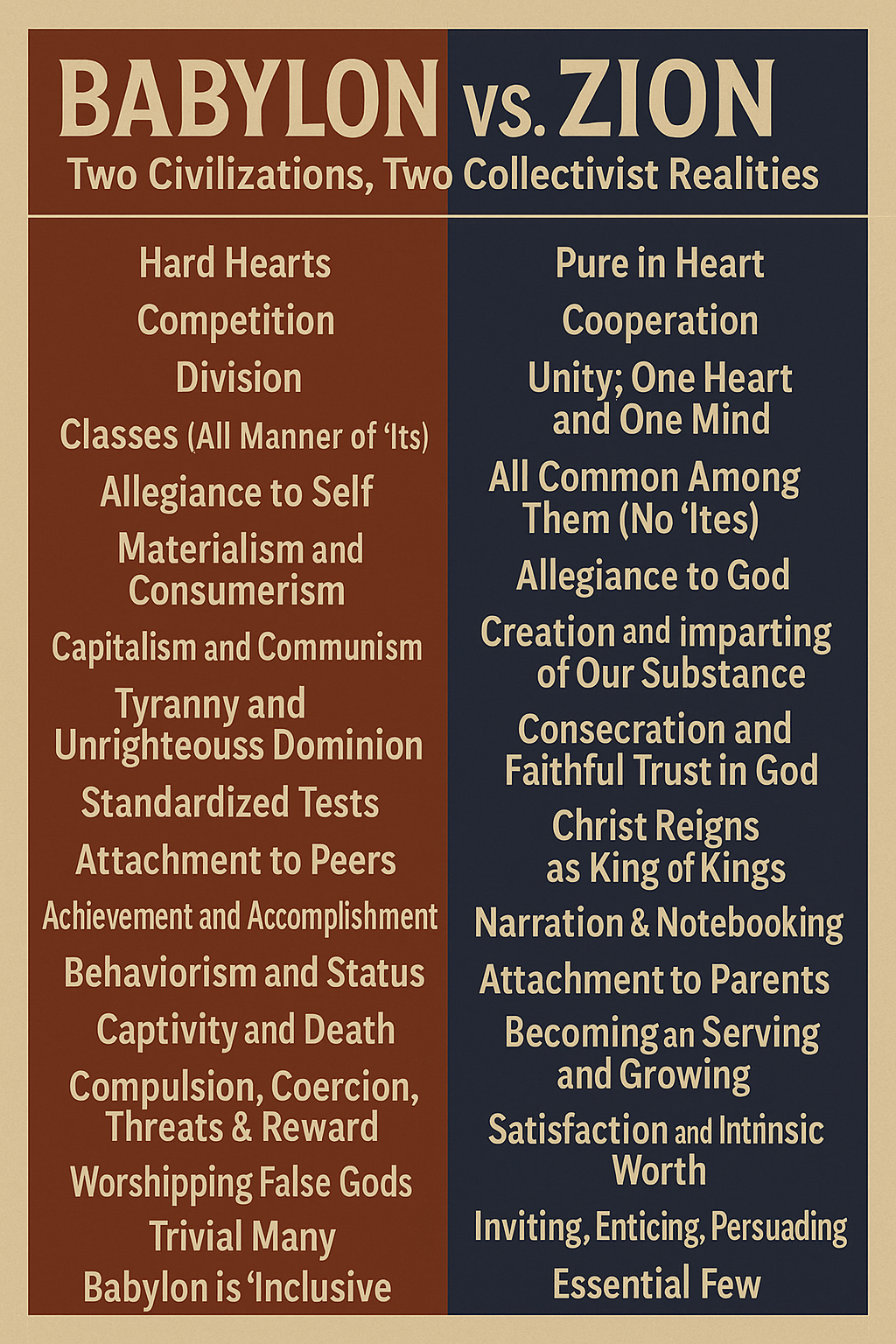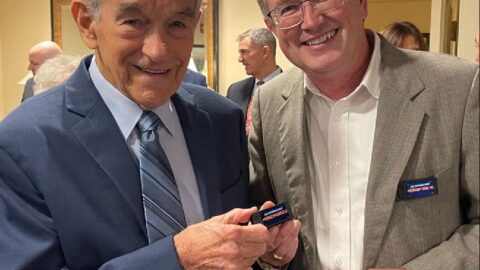The Power of Paradigms and the Principle-Centered Life
In Sean Covey’s seminal book, The 7 Habits of Highly Effective Teens, he illuminates a crucial concept that shapes the way individuals live their lives: paradigms. Covey writes, “Often our paradigms are incomplete, inaccurate, or kinda messed up. We shouldn’t be so quick to judge, label, or form rigid opinions…” This observation holds profound implications. A paradigm, from the Greek word “paradigma,” is a pattern, model, or representation. It is the mental lens through which we perceive reality, shaped by our experiences, culture, upbringing, and environment. However, when our paradigms are flawed, they skew our perception of reality, affecting our decisions, relationships, and overall effectiveness.
Covey emphasizes that we can identify our personal paradigm by asking reflective questions: “What is the driving force of my life? What do I spend my time thinking about? Who or what are my obsessions?” These questions reveal what we center our lives around, whether it be school, work, relationships, possessions, or other transient factors. As teenagers, common life-centers might include friends, enemies, hobbies, or romantic relationships. For adults, the focus may shift to family, money, work, or pleasure. While these centers may provide temporary satisfaction or structure, they are ultimately unstable and can lead to inconsistency and disappointment.
The danger in living from a flawed paradigm is that we begin to see the world not as it is, but as we are. Covey notes, “All of us think that we see the world as it is. In fact, we see the world as we are.” This projection of our internal world onto our external reality can perpetuate misunderstandings, biases, and poor decision-making. If our paradigms are built on conditional love, insecurity, or misinformation, our lives will reflect confusion and conflict.
In contrast, Covey proposes a transformative solution: to live a principle-centered life. He writes, “In case you were starting to wonder, there is a center that actually works…. Honesty is a principle. Service is a principle. Love is a principle. Hard work is a principle. Respect, gratitude, moderation, fairness, integrity, loyalty, and responsibility are principles.” Principles are universal, timeless truths that serve as a moral compass. Unlike emotional or situational centers, principles do not change. They provide stability, clarity, and direction in an ever-changing world.
Just as a compass always points to true north, principles help individuals align their actions and decisions with values that foster growth, trust, and effectiveness. A person centered on principles lives with purpose and resilience. They are not swayed by external pressures or transient circumstances because their foundation is solid. This clarity leads to better relationships, improved mental and emotional health, and the ability to navigate life’s challenges with wisdom and grace.
In understanding our paradigms and choosing to live a principle-centered life is not just important – it is essential. Paradigms shape our reality, and when based on flawed or unstable centers, they distort our vision and choices. By contrast, principles are eternal, reliable, and grounding. They guide us toward truth, integrity, and fulfillment. As Covey wisely suggests, the heart recognizes true principles, and aligning with them is the path to a meaningful and effective life.
Our internal maps of reality—are susceptible to influence and are shaped within the framework of Lawrence Kohlberg’s 6 stages of moral development. These stages reflect how people evolve in their reasoning about right and wrong, and they deeply affect the paradigms they adopt.
Overview: What Are Paradigms?
As Sean Covey describes, a paradigm is the mental framework or lens through which we interpret the world. Paradigms shape our decisions, behaviors, and relationships—and they can be accurate or distorted depending on our level of awareness and moral maturity.
Kohlberg’s Stages of Moral Development & Paradigm Formation
LEVEL 1: Pre-Conventional Morality (Self-Interest Focused)
Stage 1: Obedience and Punishment
- Paradigm: “Right” means avoiding punishment. Authority defines truth.
- Susceptibility: Paradigms are shaped by fear and external control. Media, schools, or parents can implant shallow ideas of morality based on consequences rather than internal principles.
- Example: A child may believe lying is wrong only because they’ll get in trouble—not because it violates truth.
Stage 2: Self-Interest/Reward Orientation
- Paradigm: “What’s in it for me?” Morality is transactional.
- Susceptibility: Easily manipulated by consumerism, peer approval, or propaganda promising rewards.
- Example: A teen may think a behavior is “right” if it leads to status, popularity, or material gain.
LEVEL 2: Conventional Morality (Conformity & Social Order Focused)
Stage 3: Interpersonal Accord and Conformity
- Paradigm: Right = pleasing others and fitting in. Identity is shaped by groupthink.
- Susceptibility: Paradigms can become warped by peer pressure, social media, cultural trends.
- Example: Someone may support or oppose issues simply because it’s the “socially accepted” view in their circle.
Stage 4: Authority and Social Order
- Paradigm: Law = morality. Right is obeying rules and maintaining order.
- Susceptibility: Paradigms can be exploited by authoritarianism, state indoctrination, or systems designed to maintain power.
- Example: A person might support unjust laws because “it’s the law,” without critical evaluation.
LEVEL 3: Post-Conventional Morality (Principle-Centered Thinking)
Stage 5: Social Contract and Individual Rights
- Paradigm: Laws are important, but can be questioned for the greater good.
- Strength: Paradigms become more independent and principle-based. Truth is evaluated critically.
- Example: A person sees civil disobedience as morally right if laws violate human rights.
Stage 6: Universal Ethical Principles
- Paradigm: Guided by internal moral compass (justice, dignity, truth), regardless of laws or majority opinion.
- Strength: Paradigms are rooted in timeless principles, like integrity and compassion.
- Example: Figures like Martin Luther King Jr. or Gandhi exemplify Stage 6—challenging injustice based on universal ethics, not popular consensus.
Why It Matters: Principles vs. Paradigm Traps
Covey emphasizes that principle-centered living is the most stable and authentic way to live. However, if people are stuck in lower levels of moral development, they become:
- Easily manipulated by media, propaganda, or group pressure.
- Susceptible to emotional reasoning instead of critical thinking.
- Trapped in consumerist or authoritarian paradigms.
Paradigms Aligning with Moral Reasoning:
Paradigms are shaped by the moral reasoning stage we operate from. As people mature through Kohlberg’s stages, they shift from external, self-centered paradigms to internal, principle-based ones. The goal is to align our paradigms with truth, fairness, justice, and responsibility—not just law, opinion, or convenience.
True freedom and critical thinking emerge when we rise above manipulation and live by universal principles.

Paradigms and the six stages of moral development (from Lawrence Kohlberg’s theory) are deeply influenced by our upbringing, cultural narratives, and the information we consume. Here’s a breakdown of how each moral stage can be shaped—or corrupted—by ignorance, propaganda, and misinformation, often perpetuated by past generations, media, and false leaders:
1. Obedience and Punishment (Stage 1 – Pre-conventional)
- Mindset: “I must obey rules to avoid punishment.”
- Vulnerability: Easily manipulated by fear-based narratives—government or media can present obedience as the only safe choice.
- Example: “Do what you’re told, or you’re unpatriotic” becomes a norm, even if what you’re told is morally wrong.
2. Self-Interest (Stage 2 – Pre-conventional)
- Mindset: “What’s in it for me?”
- Vulnerability: Propaganda can exploit self-interest by framing immoral or selfish actions as personally beneficial.
- Example: Politicians may offer tax cuts or benefits to support harmful policies, shaping morality around gain.
3. Interpersonal Accord and Conformity (Stage 3 – Conventional)
- Mindset: “I want to be liked and seen as good.”
- Vulnerability: Paradigms are shaped by peer pressure, societal norms, and media culture. Groupthink replaces critical thinking.
- Example: Accepting immoral wars or unjust laws because everyone around you supports them, or it’s what “good citizens” do.
4. Authority and Social Order (Stage 4 – Conventional)
- Mindset: “We must follow laws and respect authority to maintain order.”
- Vulnerability: Faux leaders and Judas goats (false guides) use law and order rhetoric to justify corruption and suppress dissent.
- Example: Supporting unjust government actions just because they’re legal, ignoring whether they are ethical.
5. Social Contract (Stage 5 – Post-conventional)
- Mindset: “Laws should serve the greater good.”
- Vulnerability: Propaganda can manipulate the idea of “common good” to push agendas, confusing people about real justice.
- Example: Mass surveillance framed as a necessity for public safety, when it may actually erode liberty.
6. Universal Ethical Principles (Stage 6 – Post-conventional)
- Mindset: “I follow internal moral principles, even if they conflict with laws.”
- Vulnerability: Even principled thinkers can be misled if their foundational knowledge is built on lies or half-truths handed down by prior generations or institutions.
- Example: Believing one is on a moral crusade while actually serving an agenda based on distorted ideology.
Paradigms: How They’re Formed and Hijacked
- Conditioned early by parents, religion, school, and media. If these are corrupted or misinformed, false paradigms are adopted.
- Government and media influence: Constant exposure to misinformation reinforces cognitive biases and distorted worldviews.
- Echo chambers and identity politics: Reinforce paradigms not with truth, but with emotional manipulation and identity validation.
Conclusion
Unless individuals engage in deep critical thinking, question their own assumptions, and seek objective principles (like justice, truth, liberty), their paradigms and moral development remain vulnerable to indoctrination and manipulation.
To escape this trap:
- Study philosophy, history, and logic critically.
- Be aware of confirmation bias and emotional appeals.
- Embrace principle-centered thinking, as Sean Covey suggests.







